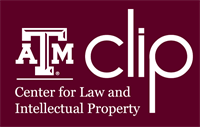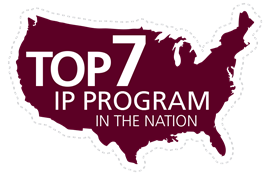On May 21-22, Professor Peter Yu, who holds a joint appointment at the School of Law and the Department of Communication at Texas A&M University, participated in a drafting meeting in Boulder, Colorado, organized by the Native American Rights Fund and the University of Colorado Law School.
This event aimed to draft proposals for new or revised treaty language that will be shared with the delegates to the Intergovernmental Committee on Intellectual Property and Genetic Resources, Traditional Knowledge and Folklore of the World Intellectual Property Organization (WIPO), a U.N. specialized agency. The WIPO intergovernmental committee is charged with developing new international instruments for protecting genetic resources, traditional knowledge and traditional cultural expressions. An upcoming session of this committee will be held in Geneva, Switzerland in June 2018.
The Colorado meeting brought together representatives of Native American groups and experts on traditional knowledge and indigenous culture. The event was organized by Melody McCoy and Sue Noe, staff attorneys of the Native American Rights Fund, and Professor Kristen Carpenter of the University of Colorado Law School. Carpenter is currently the North American member of the U.N. Expert Mechanism on the Rights of Indigenous Peoples.
At the drafting session, Yu addressed the complex intellectual property questions surrounding the ongoing effort to draft an international instrument on genetic resources and associated traditional knowledge. He also provided advice on issues that are of great importance to indigenous and traditional communities.
Yu organized the historic conference on “Traditional Knowledge, Intellectual Property and Indigenous Culture” at Benjamin N. Cardozo School of Law at Yeshiva University in New York in February 2002. That two-day conference was the first major academic conference in the United States exploring the interface of traditional knowledge and intellectual property. Since the early 2000s, Yu has published a growing volume of scholarship on issues lying at the intersection of traditional knowledge, intellectual property and human rights.
“Developing protection for traditional knowledge and traditional cultural expressions has been highly challenging,” said Yu. “Strong advocates of intellectual property rights are reluctant to recognize such protection, fearing that the new protection will slow down the development of copyrightable creations and patentable inventions. Strong advocates of the public domain equally hesitate to recognize such protection, worrying that the added protection will impede cultural and scientific advances.”
“Yet, there is no denying that indigenous and traditional communities have made important contributions that deserve careful legal and policy attention,” Yu continued. “In the past two decades, questions concerning whether new intellectual property rights should exist in this area and, if so, what form these rights should take have been hotly debated between developed and developing countries and between traditional and nontraditional communities.”
 Yu directs the Center for Law and Intellectual Property at Texas A&M University School of Law. He is an award-winning teacher and one of the world’s foremost experts on international intellectual property law.
Yu directs the Center for Law and Intellectual Property at Texas A&M University School of Law. He is an award-winning teacher and one of the world’s foremost experts on international intellectual property law.
Yu is currently the Co-Director of Studies of the American Branch of the International Law Association and has served as the general editor of The WIPO Journal, the peer-edited journal published by WIPO. In addition, he has testified before the U.S. International Trade Commission on intellectual property protection and enforcement in China. He has also spoken on intellectual property issues at the National Academy of Sciences and the Library of Congress.
 Under his leadership, the intellectual property law program at Texas A&M University School of Law has dedicated its effort to integrating theory, policy and practice into the study of intellectual property law. In the past two years, the program has been ranked seventh in the nation based on peer surveys conducted by U.S. News and World Report.
Under his leadership, the intellectual property law program at Texas A&M University School of Law has dedicated its effort to integrating theory, policy and practice into the study of intellectual property law. In the past two years, the program has been ranked seventh in the nation based on peer surveys conducted by U.S. News and World Report.